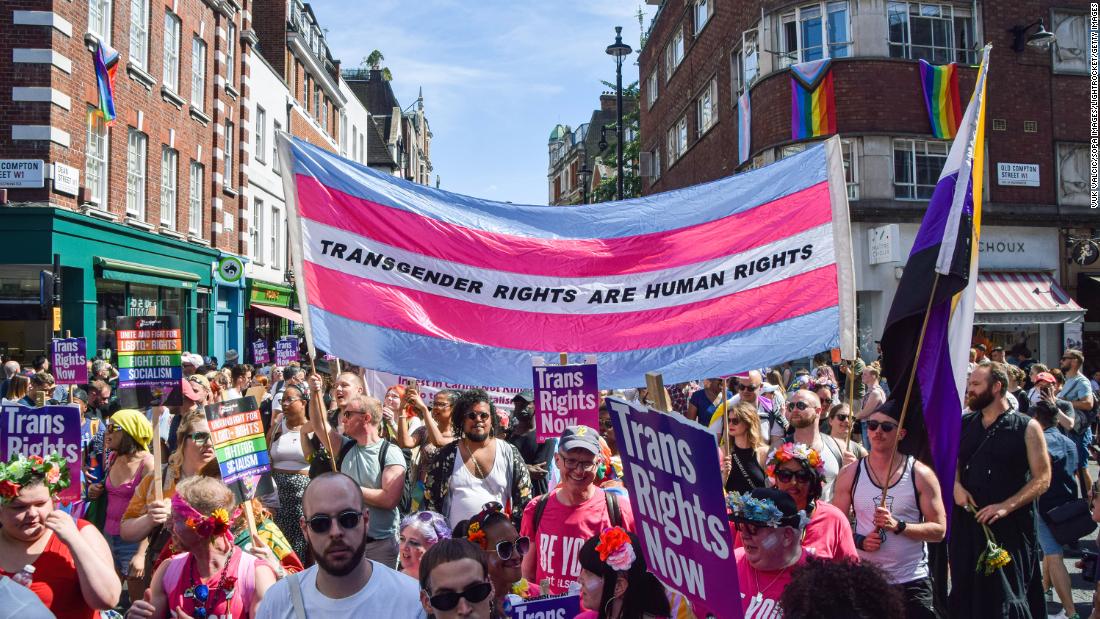
Leading the pack of hopefuls is Rishi Sunak, Britain’s former Chancellor of the Exchequer whose resignation from the government last week contributed to the resignation of Prime Minister Boris Johnson. After the second round of voting among Conservative Party lawmakers earlier this month, Sunak topped the list of the five candidates who remain in the running.
Over the past week, Conservative candidates are more likely to have been asked “what is a woman” by British journalists than to have been tripped up by more traditional questions, like the cost of a pint of milk. On Wednesday, Sunak’s biggest rival in the race, the once relatively little-known junior minister Penny Mordaunt, was asked if she would continue with culture war issues like trans rights.
Descriptors like “biological woman” are considered slurs by trans advocates when they are deployed by gender critical activists, who believe the sex one is assigned with at birth is immutable, and any rights or privileges associated with it cannot be extended to those who choose to identify as that gender.
“Not in my adult lifetime can I remember a situation where in a leadership election or selection process, there’s been this amount of focus on LGBTQ+ rights measures,” Nancy Kelley, chief executive of LGBTQ rights group Stonewall, told CNN.
The British public is more tolerant than some politicians or the press care to acknowledge, she said. “I think it’s part of a wider phenomenon that we’re experiencing in the UK where we have really progressive, positive public attitudes to lesbian, gay, bi and trans people, but we’ve got plenty of media and political conversation quite obsessively talking about trans people, and largely in a negative way,” Kelley said.
‘Disproportionate and scary’
Almost every focus group participant “asked why there were not also now more unisex toilet options available, which seemed for many to be a practical solution to the issue of single-sex spaces,” it wrote.
“We’ve got major cost-of-living crisis, we are facing down a global climate emergency, there is war in Ukraine… (and we are) dealing with the aftermath of Brexit — the fact that the media are asking so obsessively about (trans) issues, and candidates are all being expected to pronounce their views on trans people’s place in society is so disproportionate and scary,” for a group that only accounts for an estimated 0.6% of the population, Kelley said.
Transphobia might not be an electorally viable strategy, but that has not stopped this year’s leadership hopefuls.
Badenoch’s spokesperson did not deny the allegation, telling CNN in a statement that “In response to a FCA consultation, and in her capacity as Equalities Minister, Kemi wrote to the FCA on how they could comply with the Equality Act and improve the representation of women on city boards.”
